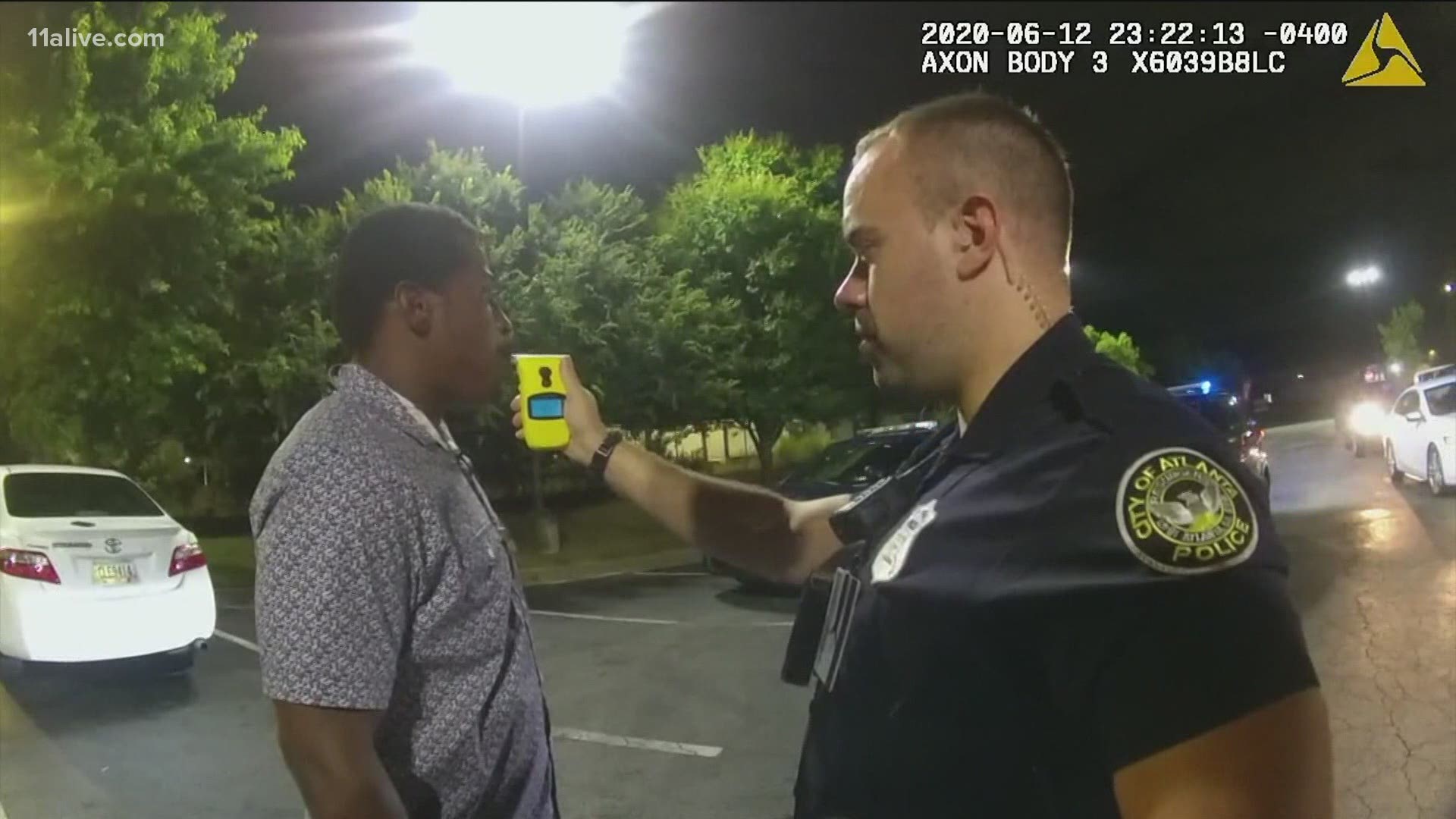ATLANTA — Attorneys for ex-Atlanta officer Garrett Rolfe have filed to have his case in the killing of Rayshard Brooks dismissed after the attempted recusal of Fulton County District Attorney Fani Willis.
The attorneys are arguing that "there is no qualified prosecutor on this case at this time."
Willis last week had a request to transfer the cases out of Fulton County denied by Georgia Attorney General Chris Carr.
RELATED: Georgia A.G. won't appoint new prosecutor in Rayshard Brooks shooting, tasing of 2 college students
Willis has argued her predecessor, Paul Howard Jr., had used the cases as a campaign prop in their race for district attorney last year, making it impossible for her to prosecute them. But Carr said state law only covered the disqualifying of prosecutors for their personal actions, not those of a predecessor.
Willis' office said in a statement she disagreed with Carr's conclusion, but would ensure justice is done and handle the cases accordingly.
The filing submitted on Tuesday by the attorneys for Rolfe - who faces charges including felony murder, aggravated assault with a deadly weapon and violation of oath by a public officer - agreed with Willis' interpretation of Georgia law.
"OCGA § 15-18-5 does not permit Attorney General Carr to question District Attorney Willis’ decision to recuse herself, as that decision is personal to her," the filing states. "Here, District Attorney Willis has resolved that she has an impermissible conflict of interest due to the actions of her predecessor – who made repeated false public statements and sought subpoenas from a non-existent grand jury with the assistance of members of his staff, who will be called as witnesses in this case."
They cite as precedent Mantooth v. State, in which the Georgia Court of Appeals ruled a criminal defendant has no standing to object to a prosecuting attorney's voluntary recusal.
In a response to Carr included in the attorneys' filing, Willis also cites Mantooth v. State.
She writes the Court of Appeals "looked at the plain language of the corresponding statute which applies to solicitors general, which employs the same operative language as OCGA § 15-18-5, and determined that the statute does not even require the conflicting prosecutor to provide a legal basis for the disqualification. As others have concluded, I do not believe you have the lawful authority to reject my recusal."
Writing about the law Willis and Rolfe's attorneys reference as a comparison, OCGA § 15-18-65, the Court of Appeals wrote in Mantooth: "We also note that, under the plain language of OCGA § 15-18-65 (a), neither the solicitor-general nor the Attorney General is required to provide a 'legal basis' for the disqualification of a solicitor-general."
Their argument, in effect, is that the law in OCGA § 15-18-5 contains no mechanism for the Georgia Attorney General to reject a prosecutor's recusal, as Carr has done to Willis.
Rolfe's attorneys conclude:
Because District Attorney Willis disqualified her office from prosecuting the case against Garrett Rolfe, and because Attorney Geeneral Carr has refused to appoint a new prosecutor, there is no qualified prosecutor on this case at this time. And, with no prosecutor to handle this case, it might never be resolved. This is simply not acceptable as Garrett Rolfe, while not in jail, is under significant restrictive conditions of bond, which include wearing an ankle monitor and abiding by a curfew.
Garrett Rolfe also remains under the societal stigma of being a defendant in a murder case, which is worse in this case because Paul Howard, unethically, tried to convict Mr. Rolfe in the court of public opinion in a nationally televised press conference.
For these reasons, we move to dismiss the case. And this motion is effectively unopposed because District Attorney Willis disqualified herself from this case and Attorney General Carr refuses to appoint a new prosecutor.
Carr, meanwhile, argued in his original letter to Willis that OCGA § 15-18-5 "may only be properly invoked 'when a district attorney's office is disqualified from interest or relationship to engage in a prosecution'" and that Willis' circumstances do not meet a proper invocation.
In a response to Willis' second letter, which contained the argument mirrored by Rolfe's attorneys, Georgia Chief Deputy Attorney General W. Wright Banks, Jr. wrote: "Thank you for your letter of February 11th. The decision set forth in this office's letter to you of February 9th remains in place."
The Fulton County Superior Court will have the final say on the matter.

